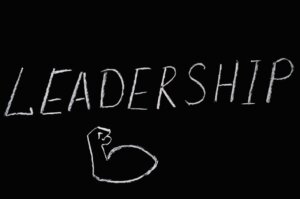Adaptability and Resiliency as Overlooked Leadership Qualities
In my mind the unsung hero of effective leadership are two related and overlapping qualities: adaptability and resiliency. The ability and, probably more importantly, the willingness of a leader to adapt his or her thinking, behavior, or strategy based on changing circumstances, miscalculations, or other factors, is a historically underrated quality that is starting to get its due in this rapidly changing world. And maybe even more so than adaptability, resiliency — discussed here as the capacity to bounce back from perceived and actual mishaps, set-backs, and adversity — has been overlooked as a leadership competency.
Research on Resiliency
I recently read that Ceridian Corporation conducted a study and published an executive briefing on organizational resilience. They arrived at the conclusion that resilient organizations are those that are able to respond to two seemingly paradoxical imperatives: 1) managing for performance (enhanced by consistency, efficiency, and immediate results) and 2) managing for adaptation (enhanced by innovation, improvisation, anticipation, and commitment to long-term benefits).
In my mind what is reflected here is a mindset that embraces disruption to organizational plans, strategy, and operating procedures, as normal and inevitable. The leader that maintains this mindset does not react with shock, dismay, or confusion to disruption of the best laid plans. Instead, he or she is eager to analyze the circumstances, ascertain the meaning behind the unexpected, and determine whether there are appropriate adjustments to be made. In addition, leaders demonstrating this type of leadership are able to build more resilient direct reports, teams, and ultimately organizations.
Origins of Resiliency
It is the viewpoint of many psychologists and sociology experts that resiliency is a quality that is partly inbred and partly developed through childhood experiences and modeling. The problem with this viewpoint is that it presumes that a person’s level of resiliency is pretty much set by the time they are in early to middle adulthood. It is my opinion that a certain amount of resiliency – definitely enough to make a difference as an organizational leader – can be developed in adults simply by embracing a worldview that change, disruption, and mishaps are as normal and predictable in organizations as salaries and vacation days. Or perhaps it is more analogous with the sentiments I heard expressed by a veteran of the Iraq conflict: “It is a given, no plan ever survives first contact”.
In the following weeks I will be exploring the role of resiliency and adaptability in leadership. It would be great to hear from others if they have any thoughts, questions, or references on these competencies.
 Sections of this topic
Sections of this topic
















